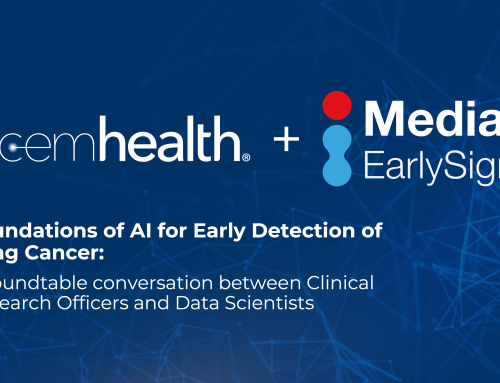This Week in Clinical AI, Episode 6 (09/05/23)
In this week’s episode of This Week in Clinical AI, Jeremy highlights how AI can be used for infant food allergy detection and a study about using GPT-4 to improve patient understanding of surgical consents.
This Week in Clinical AI Episode 6 Topics:
- 0:00 Introduction
- 0:32 Topic 1: Machine learning uses electronic health records to stratify food allergy risks in infants
- 1:26 Topic 2: Bridging the Literacy Gap for Surgical Consents: An AI-Human Expert Collaborative Approach
Identifying Pre-Birth Patterns and Food Allergies
Food allergies have become a prevalent concern, particularly among children. Many believe that the number of kids with food allergies is increasing. To delve deeper into this issue, a team in Israel decided to explore whether machine learning AI can identify a correlation between pre-birth patterns and the development of food allergies.
Although this study has not undergone peer review, its findings are intriguing. The team examined various factors, such as whether the mother used systemic antibiotics during pregnancy. The results demonstrated potential correlations, shedding light on possible preventive measures to curtail the rise of food allergies among children.
Further research is necessary in this field, but the study provides valuable insights into understanding and potentially preventing food allergies. It also showcases the potential of AI in uncovering connections that may not be evident through traditional research methods. [1]
Simplifying Informed Consent Forms using AI
Have you ever felt confused when reading and signing informed consent forms before medical procedures? You’re not alone. These documents are typically written at a high college reading level or even higher. Recognizing this issue, a team consisting of researchers from Brown, Stanford, and other institutions sought to simplify the language used in informed consent forms.
In this case, the researchers utilized generative AI, specifically GPT-4, to achieve their goal. They fed parameters to GPT-4 and successfully trained it to produce new informed consent forms written at an eighth-grade reading level, which is the average reading level in the United States.
The significance of this achievement lies in the fact that the legally required reviewers, who assess these simplified informed consent forms, gave them positive feedback. Even medical ethical reviewers, responsible for evaluating the content, found the simplified forms to be acceptable.
This development represents a groundbreaking application of generative AI in improving healthcare. By simplifying the complex language in consent forms, patients can better grasp and understand the risks, benefits, and alternatives related to their medical procedures. It promotes transparency, enhances patient autonomy, and mitigates the potential for misunderstandings. [2]
This Week in Clinical AI Episode 6 Wrap-Up
The two topics discussed in this episode highlight the immense potential of AI in the field of healthcare. From detection of food allergies to simplifying informed consent forms, AI is revolutionizing how we approach these crucial aspects of patient care.
AI algorithms can analyze vast amounts of data to uncover patterns and correlations that may elude human researchers. This capability is particularly valuable in studying complex medical conditions such as food allergies, where numerous factors contribute to their development.
Moreover, the use of generative AI in simplifying informed consent forms demonstrates the effectiveness of AI in enhancing communication between healthcare providers and patients. By transforming complex medical jargon into easily understandable language, patients can make informed decisions about their healthcare options.
Thank you for joining us on this week’s episode of This Week in Clinical AI. Make sure to stay tuned for future episodes on our blog, YouTube, and TikTok, as we continue to explore the exciting advancements in AI and its impact on healthcare.
